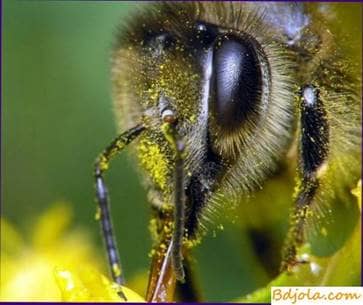Fatigue of bees

Beekeepers know cases when, apparently, equal in strength bee families of the same breed are sharply distinguished by the activity of collecting honey. He noticed that bee families after a number of years of increased growth and good productivity begin to lag behind other families in strength, and in honey. I explained this by the fact that with artificial stimulation the uterus lays more eggs, that is, they grow more brood than they should, as a result, the nascent bees become less viable. After several seasons, once powerful families begin to lag behind even from middle-aged families.
The Institute of Apiculture has established that the more eggs laid by the uterus per day, the smaller the eggs. Of smaller eggs, less quality offspring are born. This basically explains the advantage of swarms before artificially derived. Eggs for the withdrawal of swarms are deposited in families, usually with attenuation of their growth.
Systematic feeding of bees with sugar in the absence or absence of perga leads to protein starvation of bees, which causes the weakening of the family and the birth of less viable offspring in it. Bees raised in weak families live about 26 days, in strong ones – 50-60 days, i. Е. in 2 times more. In addition, long beekeepers bring more nectar and pollen for each visit to the honey plants.
It is noticed that bees growing brood have a less developed fat body and come back from “work” with a bribe 2-3 times smaller than bees that did not feed brood.
The “fatigue” of bees must be remembered and, if possible, prevented. In winter, bees have to grow several generations of bees on a previously harvested perge, which has lost its fodder properties. The intake of pollen from the cucumber into the nest is of no practical significance. Feeding bees at this time of granulated sugar in the form of feeding or “training” aggravates the situation. Food for the winter build-up of bees should be honey, and if it is not, then at least previously harvested honeycomb “honey”, that is, processed by bees from syrup, but enriched with enzymes.
In the first years of using bees for pollination of cucumbers in greenhouses, when there was still no clarity in the technology of keeping bees, it was recommended to periodically change “tired” (weakened) bee colonies to fresh ones. The bees brought back to the greenhouse are accustomed to working in conditions of unlimited space and on certain plants. In greenhouses, they begin to beat about the glass and do not immediately begin work on pollination of greenhouse crops. With the weakening of the bee family in the greenhouse, it is more expedient to reinforce it, and not to change it.
Fatigue of bees
